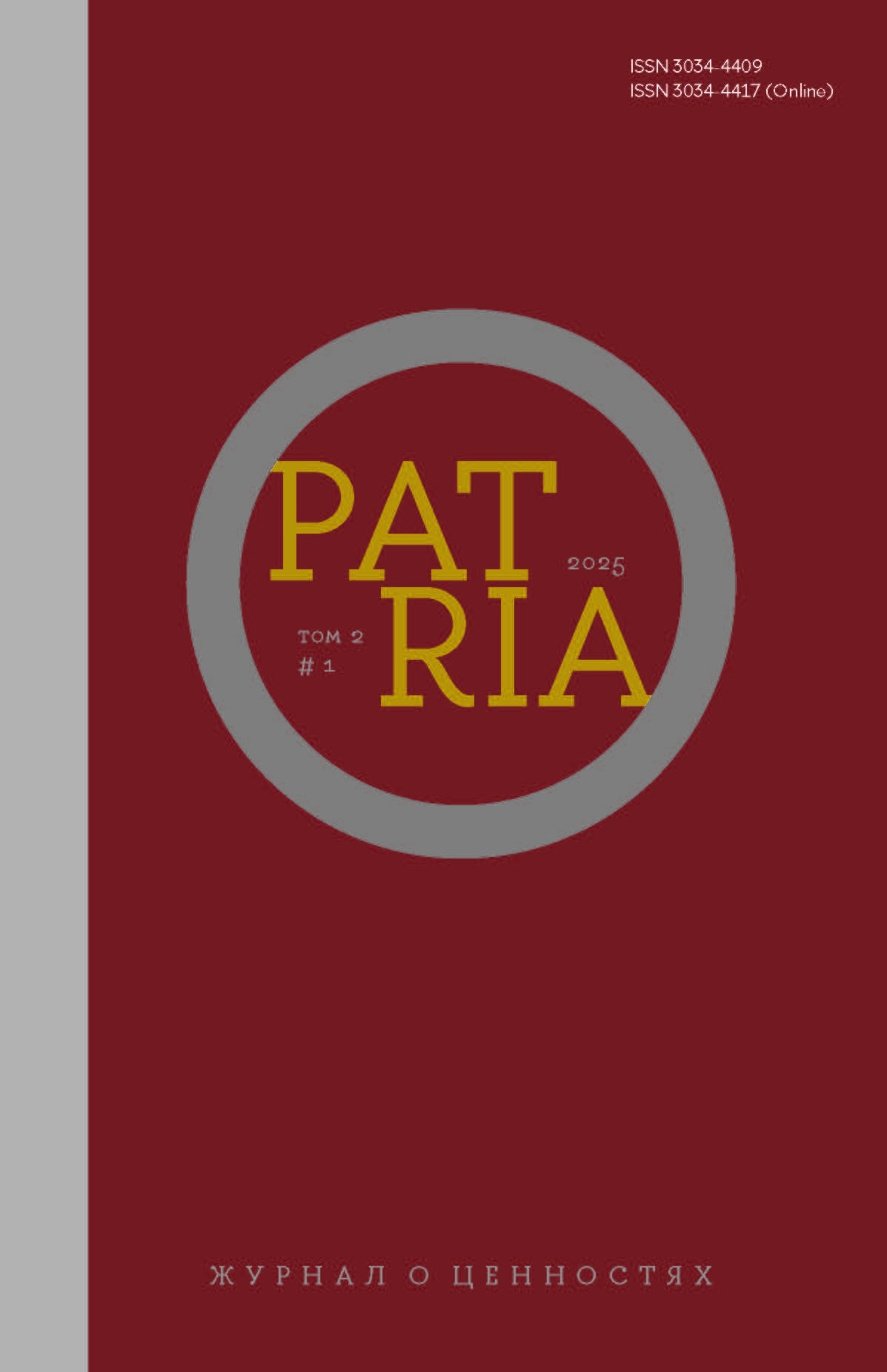Social Norm as a Functional Basis of Sociality: The Problem of Formation and Maintenance of Traditions
Abstract
The article is devoted to the problem of tradition formation in the space of sociality due to the functional potential and possibilities of social norms. The authors believe that the category of “tradition” is associated with dynamic effects (slowing down/acceleration, social and cultural reproduction). Also, “tradition” and “sociality” are categories that reflect the structural organization of social reality, whereas “social norms” are related to dynamic and functional aspects of social reality. Tradition is funded and rooted in the space of the social through the normative systems of society. It is interconnected with sociality and grows out of it. The diversity of social norms can be reduced to a triad of normative systems: “religious norms”, ‘moral norms’, ‘legal norms’, and the relationship between them differs significantly in different historical epochs and in different configurations of sociality. This puts an imprint on the systems of traditional values and forms of traditional, generally accepted practices existing in societies and civilizations.
Downloads
References
Altshuller G. S. (1973) Algorithm of Invention, Moscow: Moskovsky Rabochiy.
Baklanov I. S., Baklanova O. A. (2024) “Interrelation of Technological and Historical Consciousness in the Space of Sociality of Digital Society”, Kant, no. 2, pp. 190–195.
Baklanov I. S., Baklanova O. A., Erokhin A. M., Ponarina N. N., Akopyan G. A. (2018) “Myth as a Means of Ordering and Organizing Social Reality”, Journal of History Culture and Art Research, vol. 7, no. 2, pp. 41–47.
Bauman Z. (2005) The Individualized Society, Moscow: Logos.
Beck U. (2000) Risk Society: Towards a New Modernity, Moscow: Progress-Tradition.
Black C. E. (1966) The Dynamics of Modernization: A Study in Comparative History, N. Y.: Harper & Row.
Brzezinski Z. (2023) The Great Chessboard, Moscow: AST Publishing House.
Fukuyama F. (2008) Our Posthuman Future: Consequences of Biotechnological Revolution, Moscow: AST.
Hughes J. J. (2004) Citizen Cyborg: Why Democratic Societies Must Respond to the Redesigned Human of the Future, N. Y.: Basic Books.
Inglehart R. F. (1997) Modernization and Postmodernization, Princeton (NJ): Princeton University Press.
Inglehart R. F. (2023) Cultural Evolution. How Human Motivations Change and How It Changes the World, Moscow: Mysl.
Inglehart R. F., Baker W. (2000) “Modernization, Cultural Change, and the Persistence of Traditional Values”, American Sociological Review, vol. 65, pp. 19–51.
Kemerov V. E. (2020) “Sociality and Coexistence”, Koinon, vol. 1, no. 1–2, pp. 40–41.
Khomyakov A. S. (1994) Works in 2 vols, vol. 1: Works on Historiosophy, Moscow: Moscow Philosophical Foundation: Medium.
Kukartseva (Glaser) M. A., Ivlev V. Y., Novik N. N. (2021) “Discourses of Biopolitics and Human Security in the Context of New Challenges and Threats to Humanity”, Voprosy filosofii, no. 2, pp. 42–52.
Levy M. J. (Jr.) (1966) Modernization and the Structures of Societies, Princeton (NJ): Princeton University Press.
Nesterov A. Yu. (2021) “The Problem of the Subject in Artificial Nature”, Humanitarian Vector, vol. 16, no. 2, pp. 22–28.
Ogburn W. F. (1922) Social Change with Respect to Culture and Original Nature, N. Y.: B. W. Huebsch.
Parsons T. (1997) The System of Modern Societies, Moscow: Aspect-Press.
Parsons T. (2000) The Structure of Social Action, Moscow: Academic Project.
Pavlov A. V. (2019) “Posthumanism: Overcoming and the Legacy of Postmodernism”, Voprosy filosofii, no. 5, pp. 24–35.
Plakhov V. D. (1985) Social Norms. Philosophical Bases of the General Theory, Moscow: Mysl.
Plato (2007) Works in 4 vols, vol. 3, part 1, Saint Petersburg: Publishing House of St. Petersburg University: Oleg Abyshko Publishing.
Pokhilko A. D., Volter O. V., Nagapetova A. G. (2021) “Autonomy and Heteronomy in Modern Sociality”, Humanities and Social Sciences, no. 3, pp. 24–34.
Popper K. (1992) Open Society and Its Enemies: in 2 vols, Moscow: Cultural Initiative: Phoenix.
Rogozhnikova R. A., Pleshivtsev A. Yu. (2020) “Technology of the Process of Education of Adolescents Sociality as a Moral Quality of Personality”, Humanities Research. Pedagogy and Psychology, no. 1, pp. 48–58.
Rozin V. M. (2021) “System Approach and Description of Modern Sociality as a Condition for Designing Postculture”, Voprosy filosofii, no. 1, pp. 27–36.
Schwab K., Davis N. (2018) Technologies of the Fourth Industrial Revolution, Moscow: Eksmo.
Weber M. (1922) Gesammelte Aufsätze zur Wissenschaftslehre, Tübingen: Mohr.
Weber M. (1990) “Soziologische Grundbegriffe”, Weber M. Selected Works, Moscow: Progress, pp. 602–639.
Copyright (c) 2025 HSE University

This work is licensed under a Creative Commons Attribution 4.0 International License.


